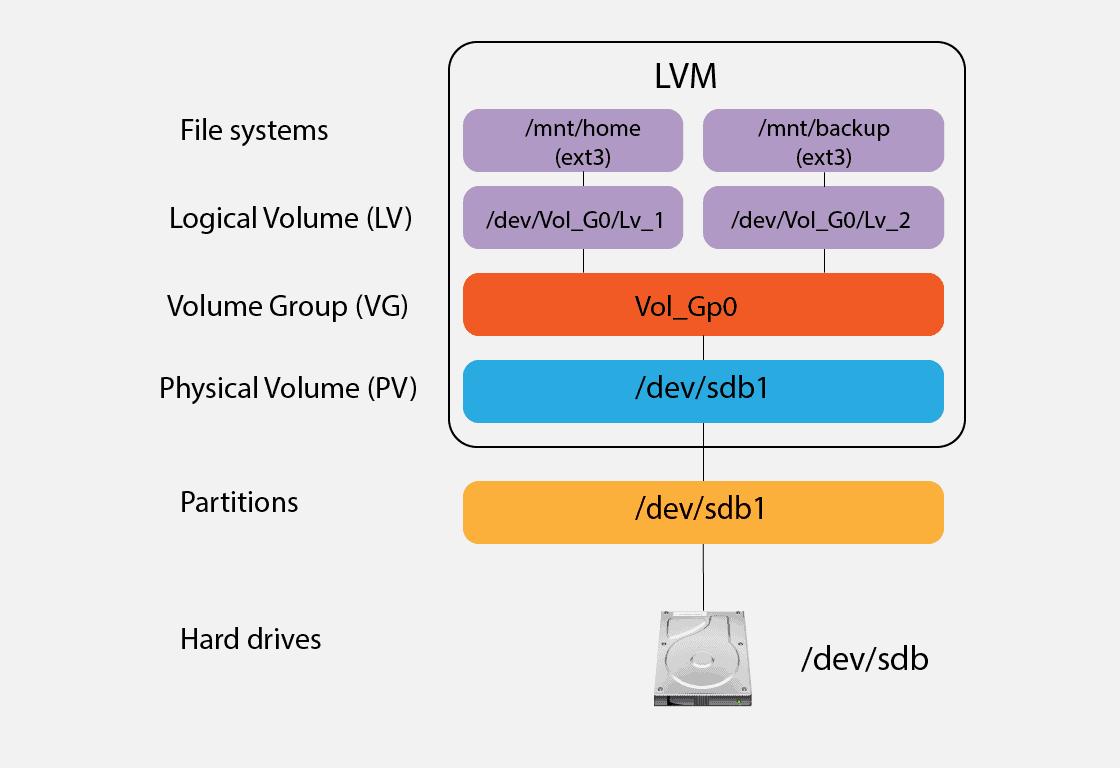
What is LVM (Logical Volume Manager) and Why Use it?
What is LVM? LVM is a special tool in Linux that let’s you manage disk storage in much more flexible way than traditional partitions. Think of it as turning multiple hard drives into a big, flexible stroage pool that you can split, resize, or grow whenever you want, without worrying about the limits of classic disk partitions. Why Use LVM? Resize storage easily: You can expand or shrink volumes without reformatting or losing data. Combine multiple disks: Make many drives look like one big storage area. Add more space anytime: Plug in new hard drive and add its space instantly. Move or migrate data: Shift storage between drives with little downtime. Take snapshots: Save the exact state of you data at a moment in time, which helps with backups. Practical Example Classic Partitioning (without LVM) You have 100GB disk with /home and /var partitions. /home fills up, while /var has lots of free space. Problem: You can’t take space from /var and give it to /home without migrating, deleting, repartitioning or copying data aroud. Which is possible but risky and time-consuming. With LVM Let’s say you have two physical disks: ...